Mapping India: A Megaseries on Citizens’ Lives
“Mapping India” is an ongoing mega-docuseries which aims to portray the lives of Indian citizens in every state and Union territory in relation to (a) Governance: the governance they receive, or lack thereof, (b) Democracy: their rights and freedoms they have, or lack thereof, and the representation they have in decision-making, (c) Economy: their ability to earn a living to be able to live with dignity, and (d) Society: issue they face in the society they live in.
This mega-series involves producing 144 video/audio stories (over 4,000 minutes, or 66 hours, of content) from the ground, to help the Indian audience look at issues from a more humanitarian perspective, and to “feel” what their fellow citizens go through in their day-to-day lives.
To us, at Newsreel Asia, being national does not mean covering issues of national significance, but rather issues that are important to people in each state and Union territory. In other words, being national to us means the sum total of all states and Union territories.
States
ASSAM
Bihar
Chhattisgarh
Delhi
Gujarat
Haryana
Himachal Pradesh
Jammu and Kashmir
Jharkhand
KARNATAKA
Madhya Pradesh
Maharashtra
ODISHA
Punjab
Rajasthan
SIKKIM
Uttarakhand
Uttar Pradesh
WEST BENGAL
Latest Videos
Suleman Ali lived his entire life in Hasila Beel, a village in Assam’s Goalpara district. He built his home brick by brick over years of labor, married off his daughters there, and believed his documents proved he belonged. But one morning in June 2025, bulldozers reduced it all to rubble.
Sikkim, despite being rich in rivers, is facing a severe water crisis. In South Sikkim, where rainfall has dropped sharply, villagers like Durga have stepped in to fill the gaps left by failing systems. Once a farmer, he now works as an unpaid “barefoot engineer,” keeping water flowing when infrastructure cannot. This is the untold story of survival in the hills.
Despite Warnings by environment experts, development projects like dams are turning out to be deadly. Destroying mountains, flooded rivers, The flash floods, cloudburst are not just natural, they are man made disasters. Newsreel Asia’s producer Surabhi Singh travelled to Northeastern state of Sikkim to explore how a dam aggravated the flash floods of October 2023.
How two Muslim minority women sisters faced unfair treatment by Karnataka Police. Behind Bengaluru's giant tech offices lies a darker truth of the crimes against minorities of the state. The two Muslim women, both single mothers, now fight for survival every day. What began as a dispute with their landlady turned into a cascade of abuse, threats, and systemic neglect. Their journey — from reporting chemical attacks and violent assaults to being ignored by the very institutions sworn to protect them — reveals not just personal trauma, but a persistent crisis: the failure of India’s democracy to safeguard its minorities.
Their case is not an exception but a pattern. Karnataka’s conviction rate under the IPC in 2022 stood at 23.9%, well below the national average. Between 2020 and 2023, the state dropped 385 criminal prosecutions, including 182 tied to hate speech, cow vigilantism, and communal violence.
Their story asks a difficult question: in a democracy that promises equal justice, why are minorities still forced to beg for protection?
Narsisus was addicted for 27 years and survived multiple suicide attempts. Today, he runs a modest community rehab centre. With no frills, only a few beds, basic meals and peer support, it offers a fragile but vital lifeline for those who walk through its doors. His journey, from the darkest moments to helping others avoid the same brink, unfolds in a state battling one of India’s deadliest mental health crises: Sikkim.
To investigate if your 9-5 corporate job has labour laws for your safety and well-being, Newsreel Asia producer Jyoti Jangra travels to India’s Silicon Valley—Bengaluru—to find out a quiet crisis unfolding inside corporate cubicles: the crumbling mental health and legal protections of India’s white-collar workforce.
Newsreel Asia producer Jyoti Jangra takes us across India – from ghost villages in Uttarakhand to flood-ravaged coasts of Odisha, conflict zones in Manipur and submerged hamlets in Himachal Pradesh – to uncover a silent, growing crisis: distress migration.
Newsreel Asia producer Surabhi Singh has travelled across parts of central India, reporting from remote tribal areas in Chhattisgarh and Odisha. In this video, she shares what she saw on the ground – the continuing struggle of Adivasi communities to protect their land, forest and natural resources.
Neeta Oraon lives in Nazira, a small town in Assam’s Sibsagar district. At 27, she has already spent more than a decade working in a tea garden. Her dream of becoming a nurse gave way early to the demands of poverty, debt, and family survival. She now works long hours under the sun, earning 250 rupees a day while caring for her ailing mother. Like Neeta, thousands of women in Assam’s tea gardens remain trapped in cycles of generational hardship and unseen labour.
Hanumanthi was in labour for the third time at a small government health facility in Karnataka’s Raichur district when she began to bleed heavily. The centre lacked the equipment to manage the emergency. Her family was told to rush her to a larger hospital. But how does a woman in the middle of childbirth survive a long road journey? Why was the local facility unprepared? Her family is left with questions—questions shared by many across rural Karnataka.
In Assam’s Morigaon district, Jamal Uddin, a madrasa teacher from Borbori, still carries the trauma of the 1983 Nellie massacre over alleged illegal immigrants. He lost his mother, brother and sister, who were among an estimated 2,000 to 3,000 people, mostly Bengali-speaking Muslims, who were killed in a matter of hours. The issue of illegal immigration from Bangladesh remains deeply contentious in the state’s politics and society. Successive governments have carried out actions in the name of anti-terror measures, targeting the minority Muslim community and fuelling widespread suspicion against it.
Mohanty Soren and Telenga Hasa, belonging to the Ho and Munda tribes, once lived in a region at the heart of the Simlipal Tiger Reserve in Odisha’s Mayurbhanj district. Just three years ago, their lives revolved around cultivation, surrounded by dense forest. Now, after being forced to vacate his land, Hasa lives 180 KM apart. Each time he returns to visit Soren in his former village, he is overcome with reflection and sorrow.
Sadhu Sundar Singh, a Christian pastor in Odisha’s Balasore district, works with Adivasi communities to curb alcoholism, violence and unsafe drinking practices. However, because he also shares his Christian faith with them, he has received death threats. He insists that belief is a personal choice protected by the Constitution, but Hindu nationalist groups see tribal conversions as a threat to indigenous culture and a push toward a “Western” religion. The resulting tension has triggered violence and unrest.
West Bengal has grappled with a deep-rooted corruption crisis for decades—today, at the heart of it lies the School Service Commission (SSC) teachers’ recruitment scam, which has shattered the hopes of thousands of deserving candidates. In this investigative video, we uncover how teaching jobs were allegedly sold for lakhs of rupees, replacing merit with money in one of the state’s most crucial sectors — education.
After India’s Partition in 1947, Abha arrived with her mother and four daughters—seeking safety, but facing years of uncertainty. Binu and Lilly Roy, who lost their father in childhood and have no memory of their homeland, and Geeta, who was just one year old when she came to India and lost her mother a few years later, all ended up in Cooper’s Camp in West Bengal’s Nadia district. They are among the countless refugees from East Bengal, now Bangladesh, who fled their homes during Partition.
Sheela, a tribal activist from Devgadh Mahila Sangathan, Anandi Foundation, has dedicated her life to fighting for the rights of Adivasi and Dalit communities in Gujarat’s Dahod district. Her work has revealed a grim reality that contrasts sharply with the glowing narratives of Gujarat’s economic success. She takes Newsreel Asia into the heart of this crisis, introducing us to Anita Naik, a mother in Lawaria Village. Anita, like many others, struggles to keep her children alive. One of her children tragically passed away, while her three-year-old son, Rajesh, was born blind and with severe physical deformities—a devastating consequence of the silent malnutrition crisis in the state.
Ajaharuddin, a primary school teacher, witnessed his family's life take a devastating turn when his brother was allegedly attacked by workers affiliated with the Trinamool Congress (TMC) party, just a day before the 2023 Panchayat elections in West Bengal. The incident revealed the perilous state of democracy in their village.
Amal, 27, is a migrant worker from West Bengal’s Purulia district who was forced to leave his village due to a lack of local job opportunities. The recent halt in funding for schemes like MGNREGA in this state has worsened his struggles, pushing him to migrate to different states in search of work. Leaving behind his wife and ailing mother, Amal’s story reflects the harsh realities faced by rural workers dealing with unemployment, migration and the collapse of social safety nets.
Umakant Naik, a resident of one of the many villages tucked away at the foothills of Sijimali Hills, is a firsthand victim of an ongoing tussle between local tribal villagers, a mining giant and the State. Known locally as Tijimali, the Sijimali Hills are home to nearly 50,000 residents, primarily from Scheduled Tribes and Scheduled Castes, whose lives are deeply connected to the region’s forest, water and land resources. The mountain streams provide drinking water, while timber and wood offer shelter and fuel. Agriculture and forest resources sustain their daily needs. The “Tij Raja,” a spiritual presence believed to dwell in the hills, serves as a cultural and spiritual anchor for the community. But this harmonious way of life is now at risk.
Prasanna serves as the sarpanch of Satabhaya Gram Panchayat in Odisha. Satabhaya, once a cluster of seven villages, is believed to be the first region affected by climate change in India. Prasanna, who spent over two decades as a migrant worker in Kerala before returning to his village, recounts the heartbreaking story of his coastal home and delves into the relentless struggles of fishermen and farming communities who have lost lives, shelter, land and livelihoods.
Haret Kevat and his wife, Nawal Devi, reside in the Morena district of Madhya Pradesh. Their children have moved to other states, driven by the scarcity of jobs and economic prospects in their home state. Their lives, marked by loneliness, represent the predicament of tens of thousands of elderly parents across the region. In Madhya Pradesh, where 36% of rural residents live below the poverty line, nearly half of the male population migrates for work—almost twice the national average. According to the India Employment Report 2024, 50.9% of these male migrants leave Madhya Pradesh for employment opportunities.
Srimati, a Dalit migrant woman, lives on the streets of Mumbai with her son Shiv Sagar and her daughter after city authorities demolished her home in Jai Bhim Nagar. While she was worried about men leering at her daughter, she learned of a “Reclaim the Night” protest organised by women from a nearby housing society. That protest was in response to the August 2024, rape and murder of a 31-year-old trainee doctor in a hospital in Kolkata. Hoping to voice her own family’s safety concerns, she went with other displaced women from her hamlet. But what she experienced at the protest, left Srimati feeling that the middle class extends empathy perhaps only to its own.
Khairunissa, along with her siblings and parents, spent years living in a multi-religious and multicultural apartment in Ahmedabad, Gujarat. When communal tensions and targeted violence against Muslims erupted in the city on February 28, 2002, her family initially felt secure, confident that their neighbours would be able to protect them. But then Khairunissa saw a mob approaching their building. In an instant, their lives and circumstances changed dramatically. More than 22 years later, the lasting impact continues to affect them and hundreds of thousands of Muslims in the state.
Madhusudan Mahto, a 60-year-old resident of Dhanbad district in Jharkhand state, is one of many paying the price for successive state governments' careless embrace of state capitalism. Coal mining has been ongoing in Jharkhand since 1901. Today, around 6,486 hectares of land in the state affected by the mining activity, while about 75% of the state’s population remains economically dependent on agriculture. Although mining is a lucrative source of revenue for the state and is prioritised over vital sectors like agriculture, it compromises the well-being of millions of residents who are not employed in the mining sector. And this is apart from significant environmental and health costs associated with the extraction of natural resources.
In the Union Territory of Jammu & Kashmir, households commonly face frequent power outages and struggle with unaffordable electricity tariffs. This, despite the region's immense potential for hydroelectric power generation. Asad Ullah Mir describes the developmental injustices his community endures due to the extraction of hydroelectric power. Meanwhile, Abdul Hamid, a 50-year-old resident of Dal Gate in Srinagar, discusses the tough choices low-income families must make between electricity and basic necessities. This raises a pressing question: Why must the people of this region endure cold, dark winters?
Fahad Shah was a student in 2009 when he launched Kashmir Walla, a modest blog that would grow into a vital voice in the fraught landscape of Jammu & Kashmir. Over the years, Shah’s work came to embody a passionate dedication to journalism—until 2022, when he was arrested under India’s stringent anti-terror laws, accused of 'propagating terror.' He is not alone. Since the Indian government's abrogation of Article 370, which revoked Jammu & Kashmir's special status, journalism in the region has become increasingly difficult. In this account, Shah reflects on his journey, the evolution of Kashmir Walla, and the 600 days he spent as a prisoner.
Irshad, a 32-year-old cab driver from Kashmir, embodies the dreams and disillusionment of many in his homeland. Once a promising cricketer and a Master’s degree holder in English Literature, Irshad’s quest for meaningful employment for over a decade drew a blank. Unemployment, mostly fuelled by the political and economic instability in Jammu & Kashmir, has left the youth with unfulfilled aspirations. Recent data suggests Kashmir has an astounding unemployment rate of 24.6%, significantly higher than the national average of 6.1%. The ripple effects are tragic: rising crime, rampant drug addiction, and an alarming increase in suicides.
Benjamin, a Kuki-Zo man and father of five in Manipur’s Churachandpur district, struggles daily to meet his family's needs amid ongoing ethnic violence. The unrest, which began over a year ago, has severely impacted the state's economy, with retail inflation soaring to 11.63% in November 2023, compared to the national average of 5.55%. The prices of essential goods have skyrocketed in this border district, which remains cut off from the commercial hub of the Meitei-dominant Imphal region, about 60 km away. All goods now come through mountainous terrain, covering a distance of over 800 km. How is Benjamin’s family – and other residents – surviving this economic crisis?
Sawmte, a 17-year-old from the Kuki-Zo tribe in Manipur, is deeply affected by the ethnic violence that erupted involving the majority Meitei community and the Kuki-Zo tribal people on May 3, 2023. On witnessing the attacks on their community by Meitei extremist groups, who were allegedly joined by sections of state police, the Kuki-Zo youth – including some teenagers like Sawmte – have put their dreams on hold to defend their tribal homeland. The ongoing struggle casts a long shadow over Manipur’s future, threatening to shape a generation defined by conflict and division.





















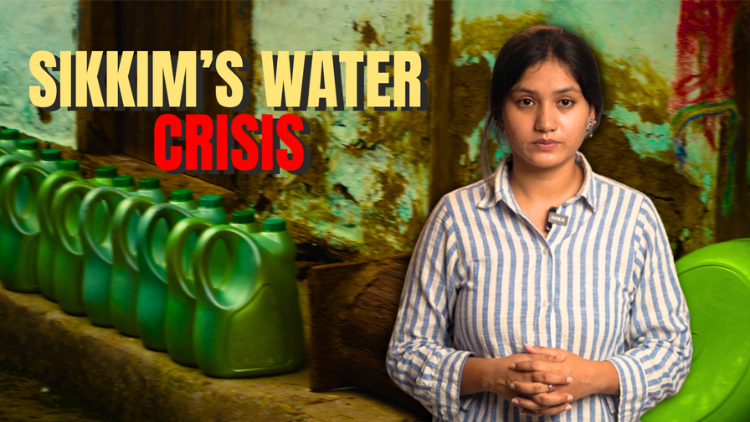





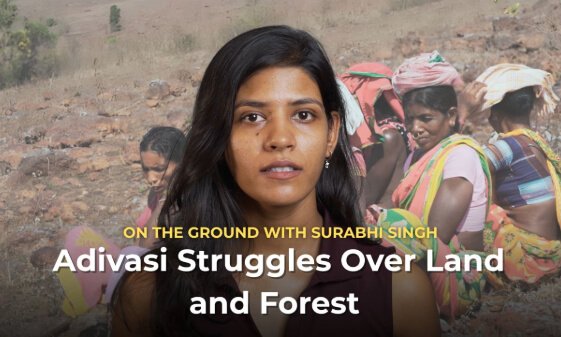







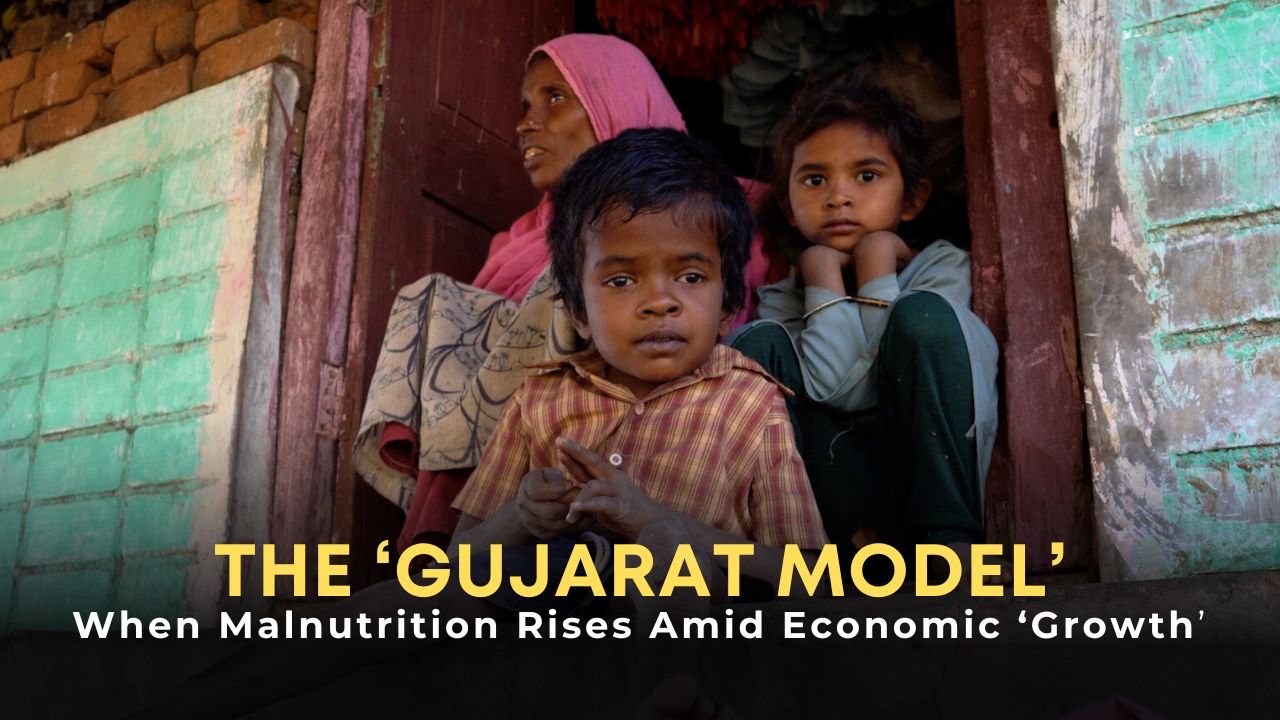

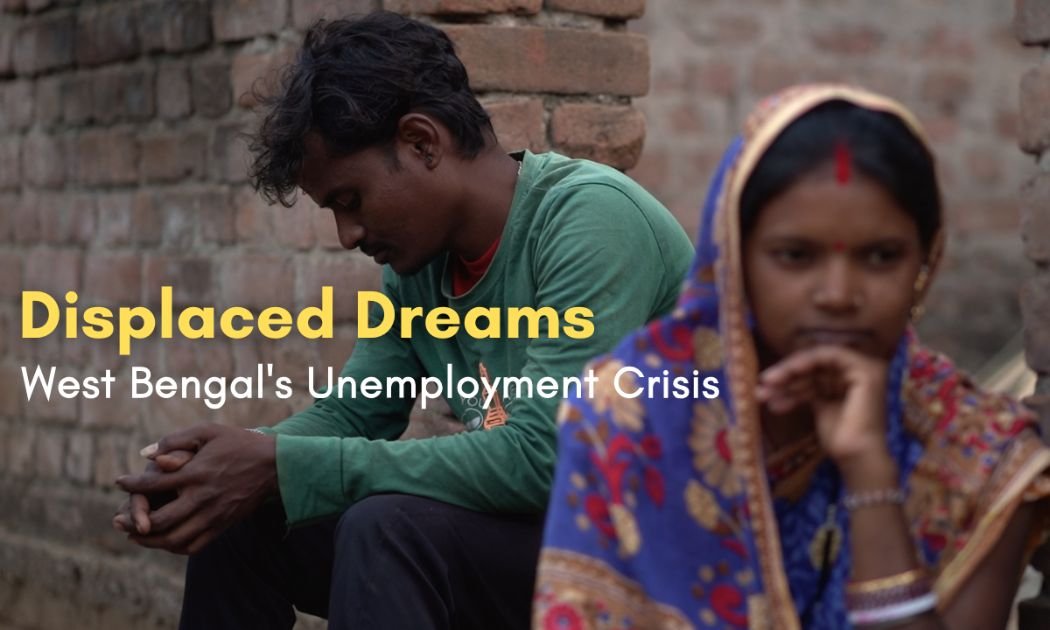
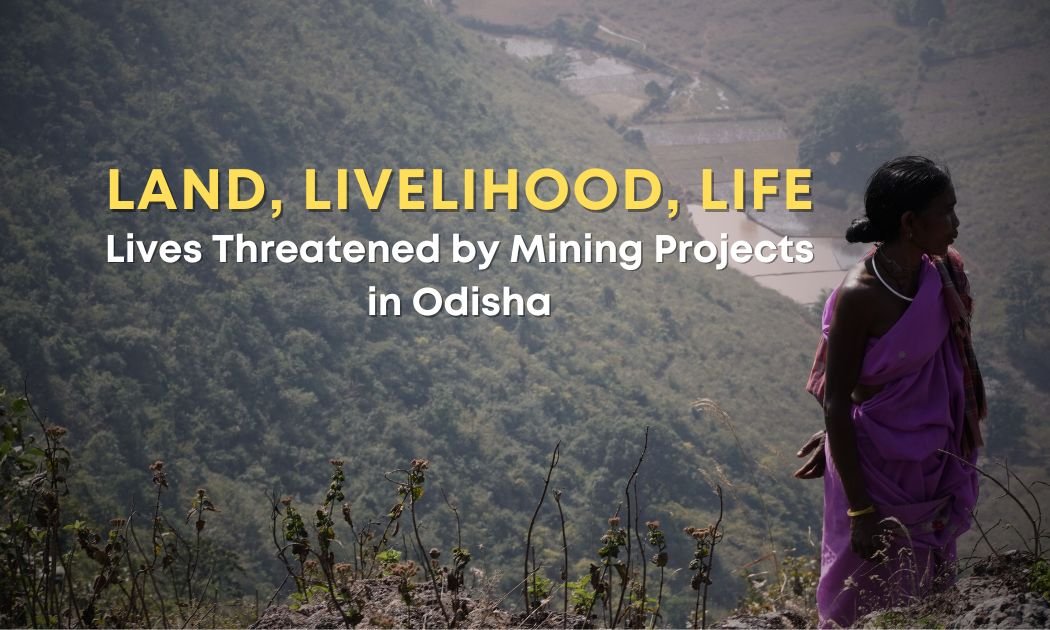
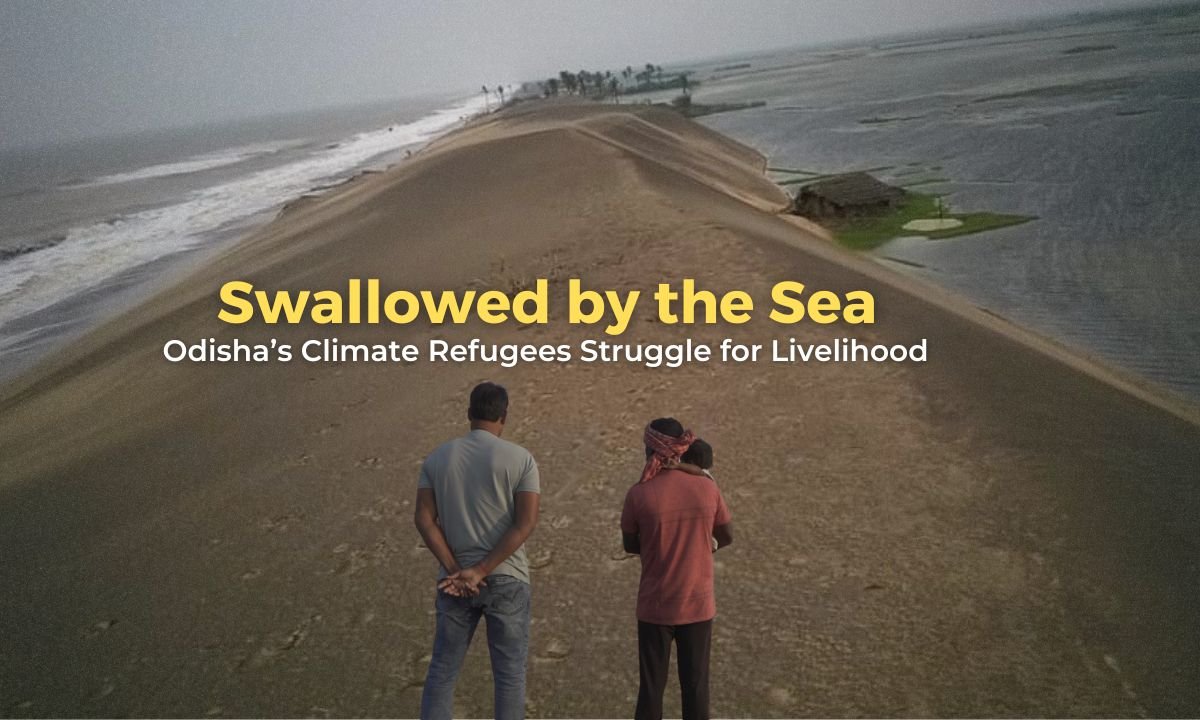
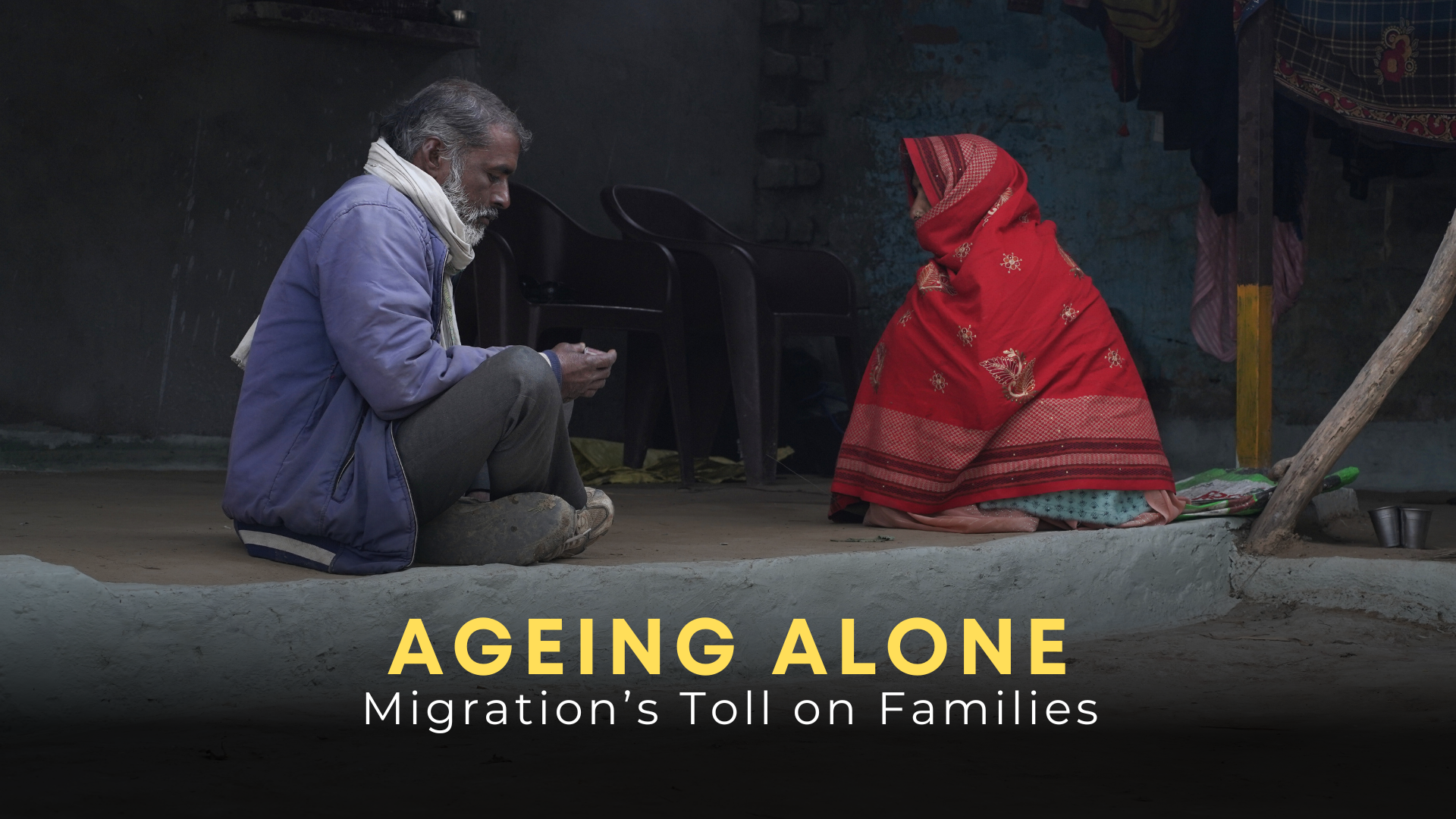
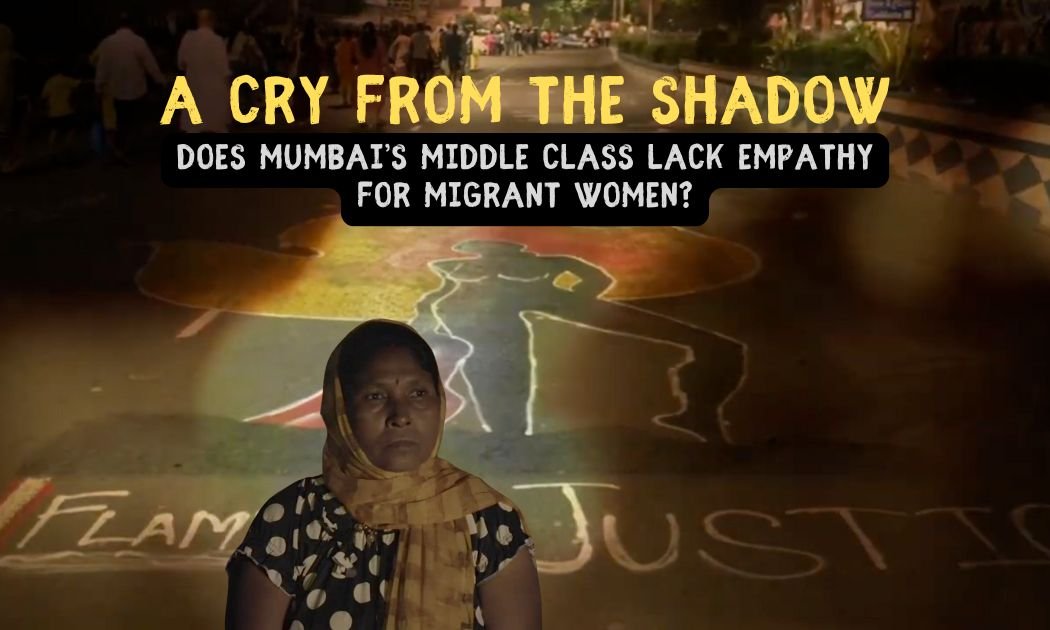
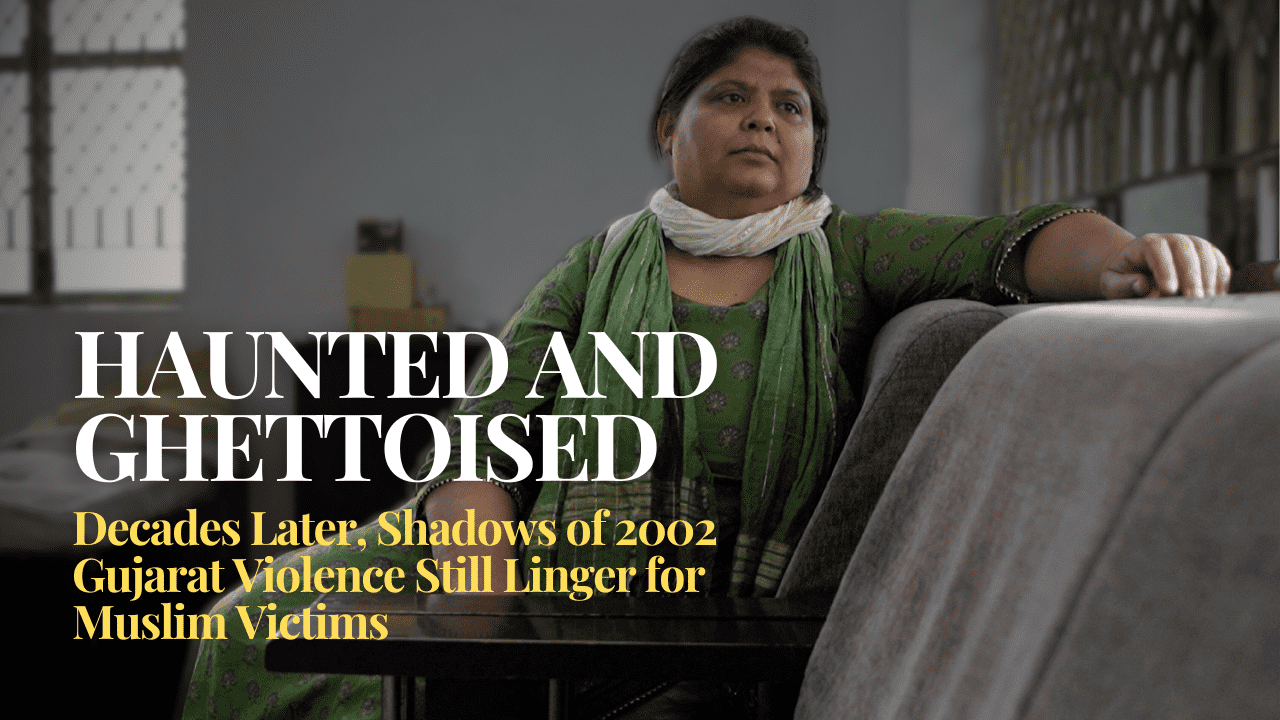
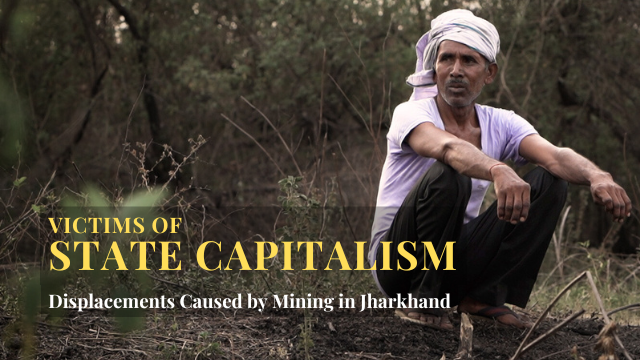
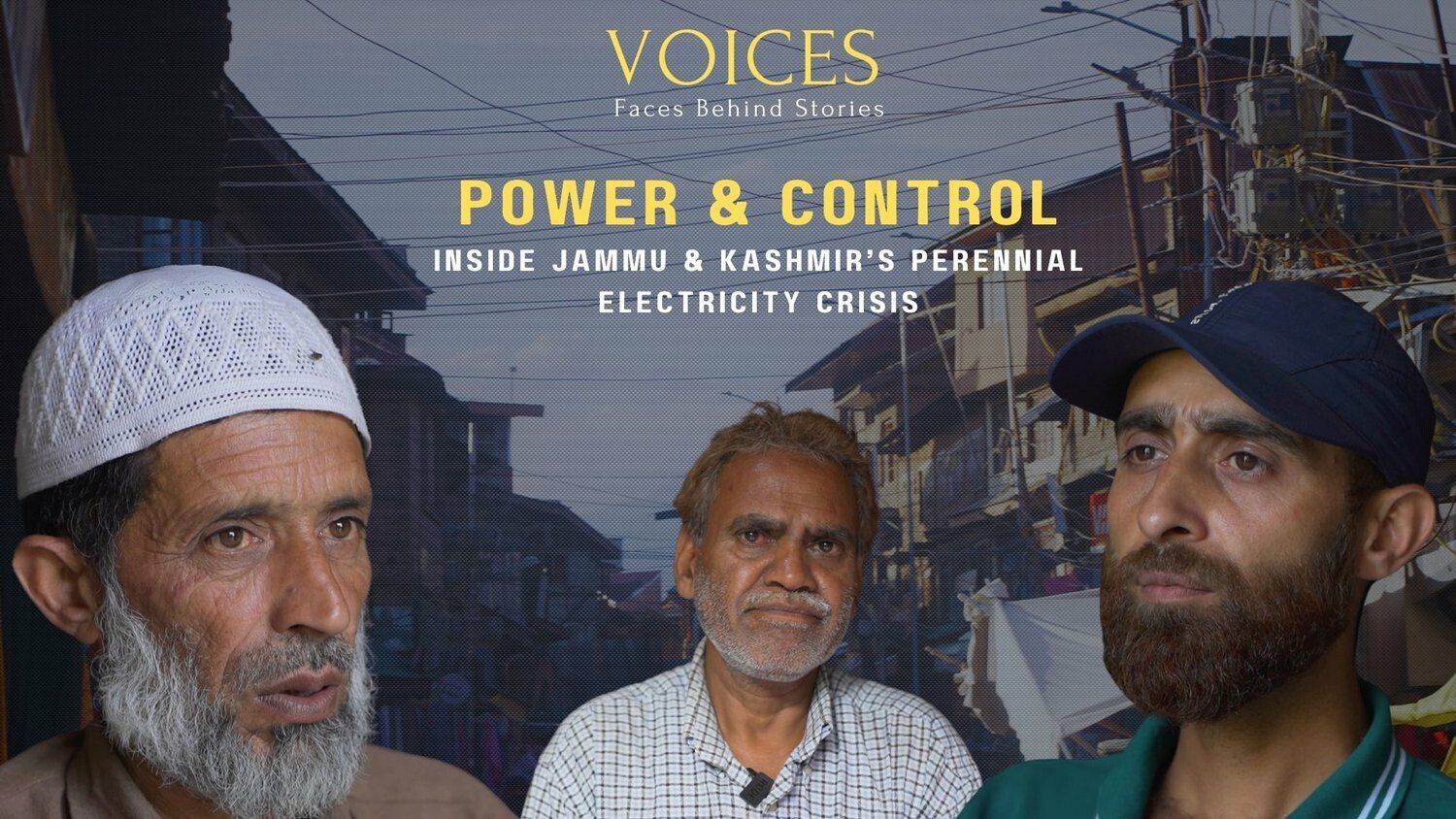
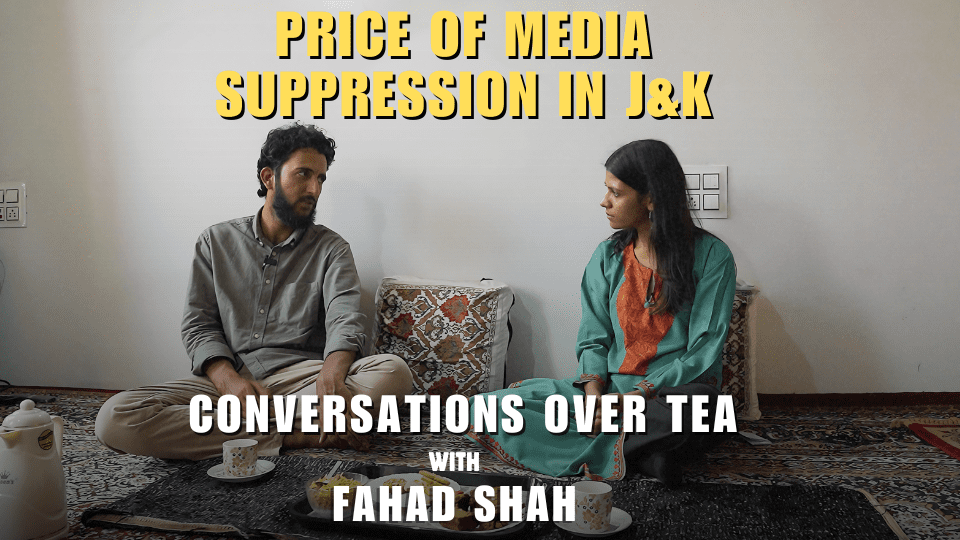
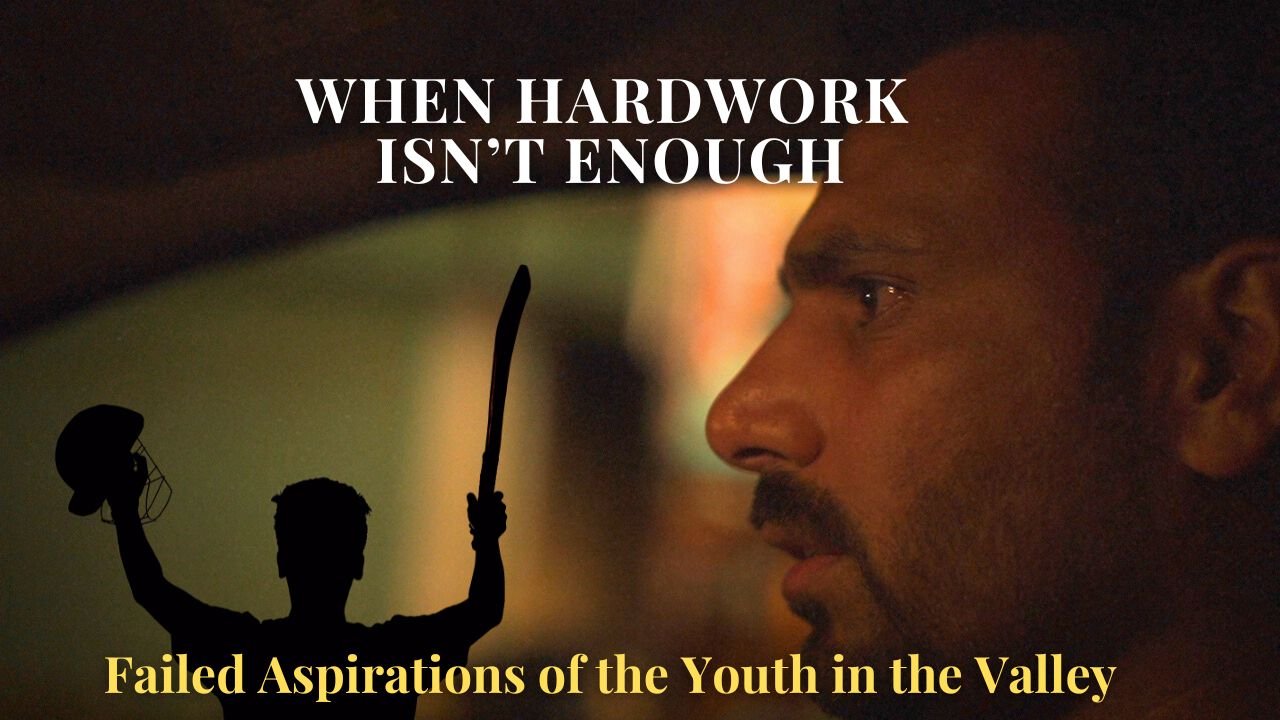


To find out whether the floods that Assam faces every year are natural or man-made, Newsreel Asia producer Tej Bahadur Singh travels to Lakhimpur district, one of the worst-hit by floods. He meets a 47-year-old Toramai Pawe, an ASHA worker and daily wage laborer, in Assam’s Pahumara Ahom village, who has lived for decades, raising her children in a modest home built through years of toil. In May 2025, a sudden flood, triggered by water released without warning from the Ranganadi Dam, swept through her village. Her husband, Biren, drowned just steps from their home, leaving Toramai in grief and despair. Their crops, belongings, and vital documents were washed away, joining the losses of countless others in their community. Across Assam, floods this year have affected 6.3 lakh people in 22 districts, claiming 26 lives and damaging 12,610 hectares of cropland.
To find out whether the floods that Assam faces every year are natural or man-made, Newsreel Asia producer Tej Bahadur Singh travels to Lakhimpur district, one of the worst-hit by floods. He meets a 47-year-old Toramai Pawe, an ASHA worker and daily wage laborer, in Assam’s Pahumara Ahom village, who has lived for decades, raising her children in a modest home built through years of toil. In May 2025, a sudden flood, triggered by water released without warning from the Ranganadi Dam, swept through her village. Her husband, Biren, drowned just steps from their home, leaving Toramai in grief and despair. Their crops, belongings, and vital documents were washed away, joining the losses of countless others in their community. Across Assam, floods this year have affected 6.3 lakh people in 22 districts, claiming 26 lives and damaging 12,610 hectares of cropland. For decades, Assam’s floodplains have been both a source of life and loss, with an average of 2.6 million people impacted annually. Districts like Lakhimpur and Dhemaji, downstream of the Ranganadi Dam, face devastating flash floods caused by sudden water releases from NEEPCO’s hydroelectric projects. These man-made disasters, compounded by a lack of early warnings and inadequate research, have turned fertile lands into zones of destruction. Families like Toramai’s lose not only their homes and livelihoods but also their sense of security. As infrastructure controls rivers without regard for communities, the floods in Assam reveal a deeper crisis—one where nature’s cycles are worsened by human hands, leaving millions to rebuild from nothing.